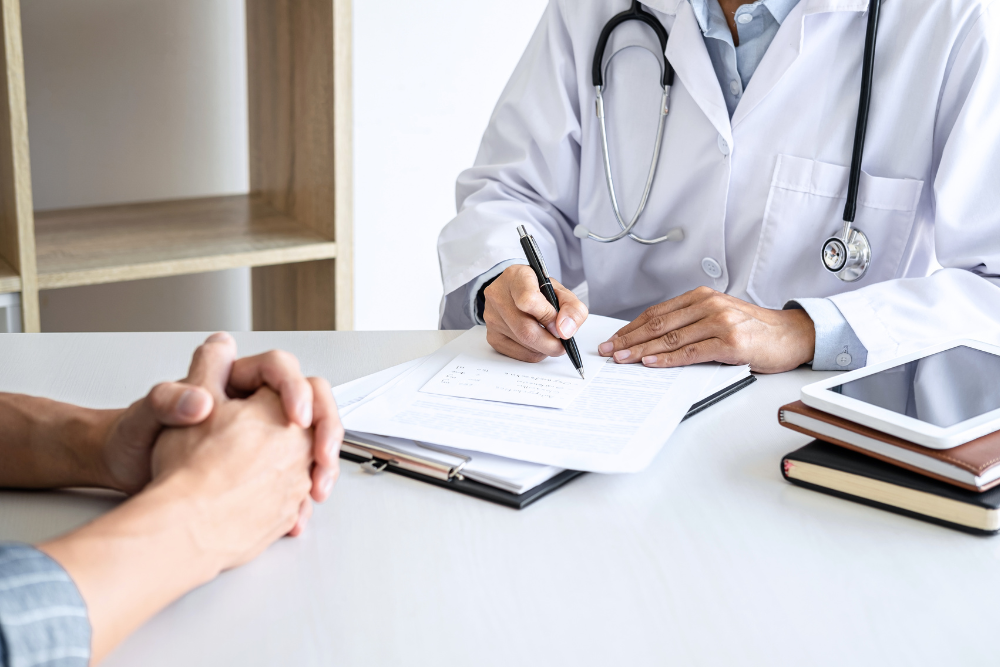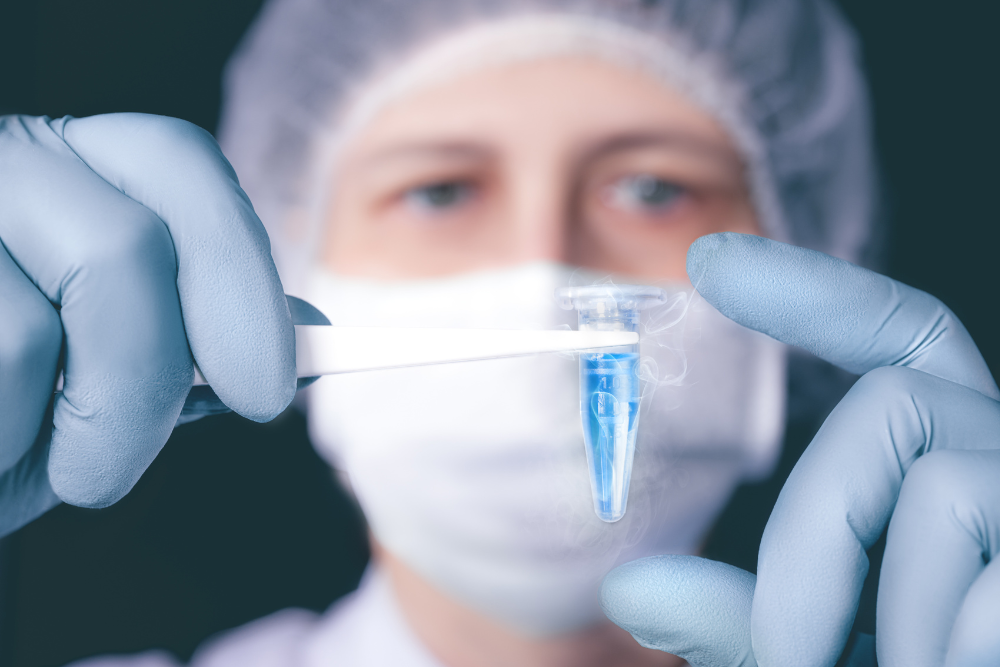Types of inflammatory bowel disease treatment
Learn more about what treatment you require if you have inflammatory bowel disease (IBD).
Types of inflammatory bowel disease treatment
Learn more about what treatment you require if you have inflammatory bowel disease (IBD).
The goal of IBD treatment is to minimise the inflammation that causes your symptoms. In the best scenarios, this might result in a lessened risk of complications, long-term remission, and symptom relief.
There is a range of available viable treatment options. In most cases, surgery or medication therapy is used to treat IBD.
Consulting a gastrointestinal specialist can help you find the best possible treatment plan for you.

The goal of IBD treatment is to minimise the inflammation that causes your symptoms. In the best scenarios, this might result in a lessened risk of complications, long-term remission, and symptom relief.
There is a range of available viable treatment options. In most cases, surgery or medication therapy is used to treat IBD.
Consulting a gastrointestinal specialist can help you find the best possible treatment plan for you.


Dietary modifications
When your inflammatory bowel disease (IBD) flares up or goes into remission, your diet can help you manage it. Based on your symptoms, your medical experts may suggest a specific diet.
The optimal diet helps you control your IBD symptoms while also providing you with the specific nutrients you require.
However, except for enteral nutrition (a special diet through a feeding tube), no diet has been demonstrated to prevent or control IBD, even though several specialised diets may be beneficial for some IBD patients.
Your doctor could advise a low-residue diet if you have stenosis or intestinal stricture. This will lessen the possibility of undigested food getting trapped in the constricted area of the bowel and causing a blockage.
You will have to speak to your doctor or dietitian to see what options are available for your case.
Dietary modifications
When your inflammatory bowel disease (IBD) flares up or goes into remission, your diet can help you manage it. Based on your symptoms, your medical experts may suggest a specific diet.
The optimal diet helps you control your IBD symptoms while also providing you with the specific nutrients you require.
However, except for enteral nutrition (a special diet through a feeding tube), no diet has been demonstrated to prevent or control IBD, even though several specialised diets may be beneficial for some IBD patients.
Your doctor could advise a low-residue diet if you have stenosis or intestinal stricture. This will lessen the possibility of undigested food getting trapped in the constricted area of the bowel and causing a blockage.
You will have to speak to your doctor or dietitian to see what options are available for your case.

Medication
Anti-inflammatory drugs
In the case of mild to moderate disease, anti-inflammatory medications are frequently used as the first line of inflammatory bowel disease treatment for ulcerative colitis. Steroids are commonly used as they have anti-inflammatory and immunosuppressive properties.

Immun system suppressors
These medications block the immune response that sends chemicals into the body that cause inflammation in several different ways. These compounds have the potential to harm the lining of the digestive tract when released.

Pain relievers
Your doctor might prescribe acetaminophen as an inflammatory bowel disease treatment to relieve minor pain. Your condition mightl be monitored to ensure that your symptoms don’t worsen due to the medication.

Antibiotics
In cases of perianal Crohn’s disease, for instance, or where infection is a risk, antibiotics may be given in addition to other treatments or as a last resort to fight off any infection that may lead to chronic health issues.

Biologics
A more recent type of therapy known as biologics focuses on neutralising the body’s inflammation-causing proteins. This inflammatory bowel disease treatment can be administered via IV infusions or via injections you give yourself.

Other medications and supplements
Commonly used medication for IBD that are known to relieve inflammation are; dietary supplements and vitamins and anti-diarrheal drugs that may be bought over the counter but, should only be taken as directed by a physician.

Anti-inflammatory drugs
In the case of mild to moderate disease, anti-inflammatory medications are frequently used as the first line of inflammatory bowel disease treatment for ulcerative colitis. Steroids are commonly used as they have anti-inflammatory and immunosuppressive properties.

Immun system suppressors
These medications block the immune response that sends chemicals into the body that cause inflammation in several different ways. These compounds have the potential to harm the lining of the digestive tract when released.

Pain relievers
Your doctor might prescribe acetaminophen as an inflammatory bowel disease treatment to relieve minor pain. Your condition mightl be monitored to ensure that your symptoms don’t worsen due to the medication.

Antibiotics
In cases of perianal Crohn’s disease, for instance, or where infection is a risk, antibiotics may be given in addition to other treatments or as a last resort to fight off any infection that may lead to chronic health issues.

Biologics
A more recent type of therapy known as biologics focuses on neutralising the body’s inflammation-causing proteins. This inflammatory bowel disease treatment can be administered via IV infusions or via injections you give yourself.

Other medications and supplements
Commonly used medication for IBD that are known to relieve inflammation are; dietary supplements and vitamins and anti-diarrheal drugs that may be bought over the counter but, should only be taken as directed by a physician.

Crohn’s disease surgery
Up to two-thirds of Crohn’s disease sufferers will need at least one surgery throughout their lifespan. However, Crohn’s disease cannot be cured by surgery.
Your digestive tract’s diseased section is cut out during surgery, and the healthy pieces are subsequently reconnected. Additionally, surgery may be done to drain abscesses and seal fistulas.
Surgery for Crohn’s disease typically only has short-term advantages, as the disease frequently reappears close to the rejoined tissue.
To reduce the chance of recurrence, it is advisable to use medication after surgery.
FAQ
What are the potential risks and side effects of IBD treatments?
The adverse effects of IBD medications, particularly corticosteroids and biologics, might include an increased risk of infection, a decrease in bone density, and allergic responses. To mitigate potential dangers, regular monitoring and discussion with healthcare professionals are crucial.
How are the treatment options for Crohn's disease and ulcerative colitis different?
Depending on where and how severe the inflammation is, different treatments may be necessary for Crohn’s disease and ulcerative colitis. While ulcerative colitis may be managed solely with drugs, Crohn’s disease frequently necessitates a wider range of methods, including surgery.
How is the effectiveness of IBD treatment monitored?
Clinical assessments, symptom assessments, laboratory testing, endoscopies, and imaging scans to detect disease activity are used to monitor the efficacy of IBD treatment.
Speak with a gastrointestinal specialist for IBD treatment options
At Sydney Gut Clinic, getting an IBD treatment can be quick and easy.
We provide the highest quality of service and utmost care to each patient so you can experience relief from uncomfortable symptoms.
Schedule a consultation with a specialist today to get the right treatment for IBD.
Sydney Gut Clinic services are only available to patients in Australia.
